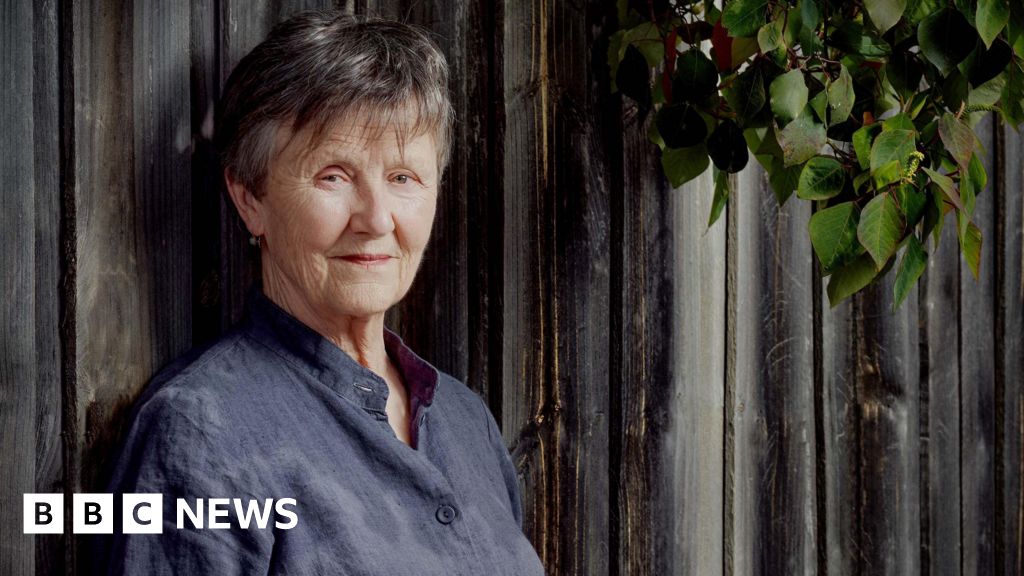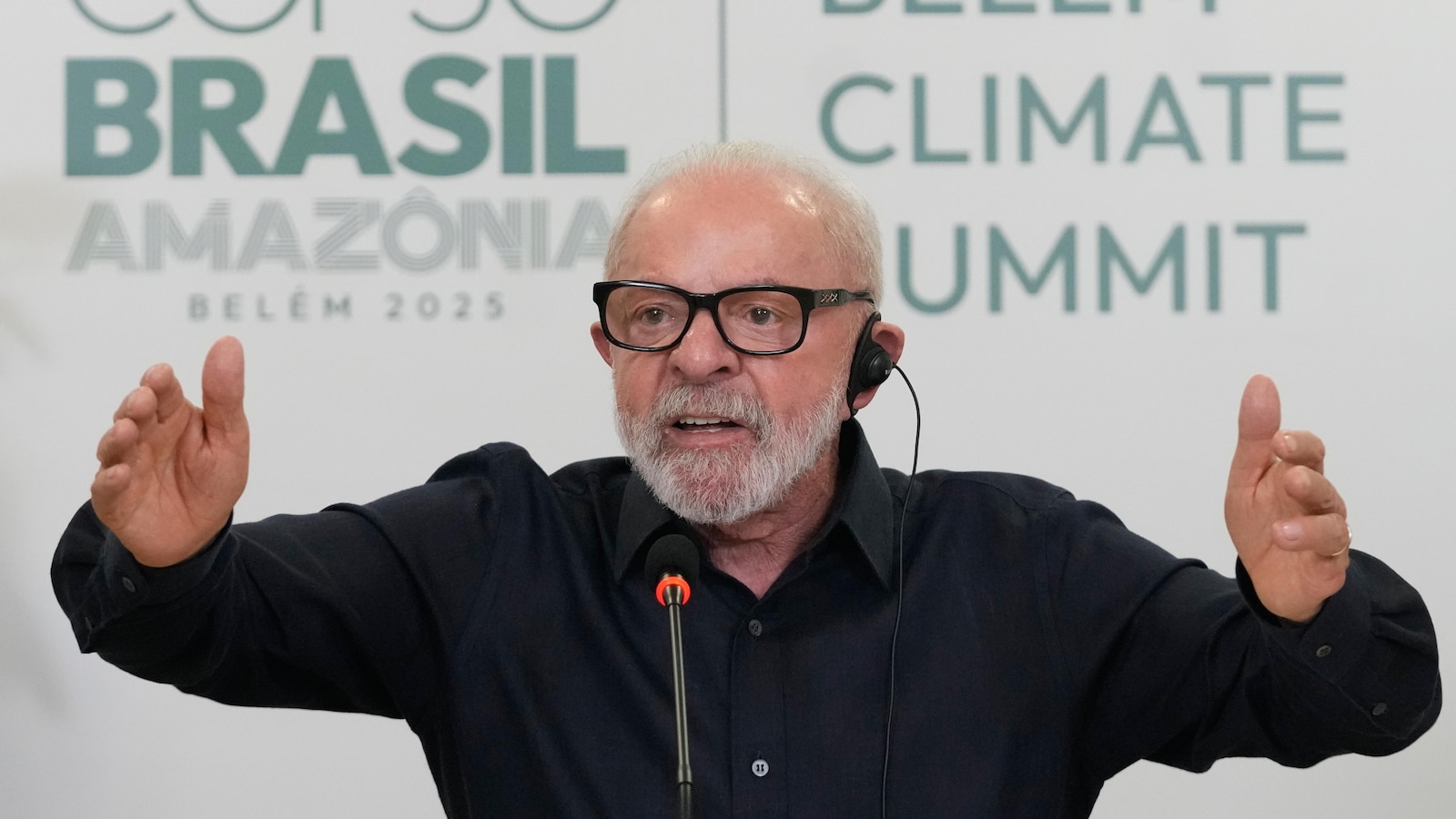Soutik BiswasIndia correspondent
"A moment comes but rarely in history when we step out from the old to the new," Zohran Mamdani told a jubilant crowd in New York on Wednesday - quoting India's first prime minister Jawaharlal Nehru's midnight speech of 1947, when the country awoke to freedom.
"When an age ends and the soul of a nation finds utterance. Tonight we step out from the old to the new," Mamdani continued.
As Mamdani wrapped up his victory speech, the title track from the 2004 Bollywood hit Dhoom rang out across the hall - followed by Jay-Z and Alicia Keys' Empire State of Mind, now pulsing with new meaning as New York's first Indian-origin mayor made history. Months earlier, Mamdani had turned Bollywood into campaign language, a nod to his South Asian roots - his mother is filmmaker Mira Nair, and his father, Mahmood Mamdani, a Ugandan-born scholar of Indian descent. On Instagram, he's recorded several messages in Hindi, often relying on playful imagery and dialogues from popular Bollywood films.
Invoking India's first prime minister on Wednesday was a final flourish.
Seventy-seven years ago, Nehru, in a sweltering Constituent Assembly hall in Delhi, had prefaced the lines borrowed by Mamdani with one of the most stirring openings in history: "Long years ago we made a tryst with destiny and now the time comes when we shall redeem our pledge, not wholly or in full measure, but very substantially."
"At the stroke of the midnight hour, when the world sleeps, India will awake to life and freedom."
It was just before midnight on 15 August 1947, and India was about to become independent after nearly two centuries of British rule. The words carried both elation and gravity - a promise of responsibility and of a nation finding its voice.
Many believe Mamdani's nod to Nehru's speech held out the promise that something new, untested, and potentially transformative had begun in New York.
Decades earlier, in another moment of awakening, Nehru had been evoking something far larger - a nation's rebirth.
Freedom, Nehru continued, as not an end but a beginning - "not one of ease or resting but of incessant striving". The service of India, he insisted, meant serving "the millions who suffer" and ending "poverty and ignorance and disease and inequality of opportunity".
He pledged that India's work would not be over "so long as there are tears and suffering", and urged unity over "petty and destructive criticism" to build "the noble mansion of free India where all her children may dwell."
The roughly 1,600-word speech by India's first prime minister has gone down as one of the most famous speeches in history.
The New York Times said Nehru had "electrified his countrymen with a speech of soaring eloquence". Historian Ramachandra Guha called it a speech "rich in emotion and rhetoric". Srinath Raghavan, a historian, told an interviewer that the "speech still resonates in India because it genuinely captured the moment in the way great speeches can".
There were three main speakers that night: Chaudhry Khaliquz-zaman spoke for India's Muslims, Dr Sarvepalli Radhakrishnan, a philosopher, for his eloquence and vision, and Nehru - the star of the evening.
The set-up of Nehru's speech was electric. Time magazine reported that Indian leaders had gathered in the Constituent Assembly Hall an hour before midnight. The chamber was "ablaze with the colours of India's new tricolour flag - orange, white and green". Nehru made what the magazine called an "inspired speech".
What followed was pure theatre of history.
"And as the twelfth chime of midnight died out, a conch shell, traditional herald of the dawn, sounded raucously through the chamber. Members of the Constituent Assembly rose. Together they pledged themselves at this solemn moment . . . to the service of India and her people."
Outside, Indians were rejoicing. In his book India After Gandhi, Guha quotes an American journalist reporting: "Hindus, Muslims and Sikhs were happily celebrating together... It was Times Square on New Year's Eve. More than anyone else, the crowd wanted Nehru."
But beneath the euphoria, chaos and violence were already stirring. Across the subcontinent, religious riots broke out. Two days later, the borders were drawn - triggering one of history's largest and bloodiest migrations, as up to 15 million people moved and about a million died.
Amid the upheaval, Nehru's words stood out - a reminder of India's unfulfilled promise, and of a leader whose command of language many believe matched the enormity of the moment.
By then, Nehru had gained a reputation as a formidable orator, delivering extempore speeches that ranged effortlessly across politics, science, art, and ethics. As Australian diplomat Walter Crocker observed, the breadth and spontaneity of his addresses were "without parallel".
As he concluded his most famous speech in August 1947, Nehru said: "We have hard work ahead. There is no resting for any one of us till we redeem our pledge in full, till we make all the people of India what destiny intended them to be."
Seven decades later, in New York, Mamdani has his own, rather different work cut out for him.

 4 hours ago
2
4 hours ago
2










 English (US) ·
English (US) ·